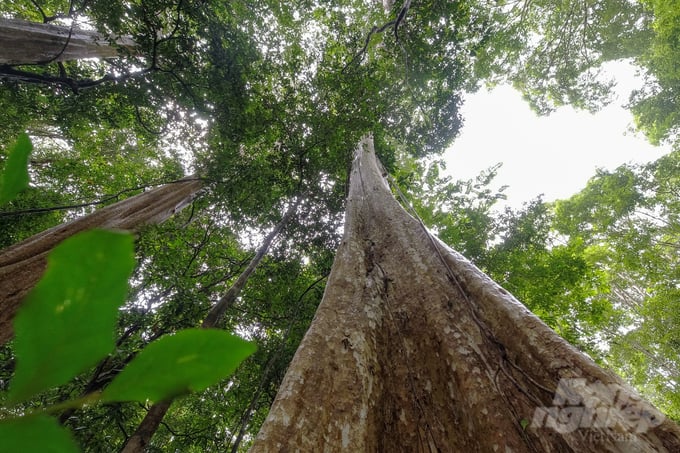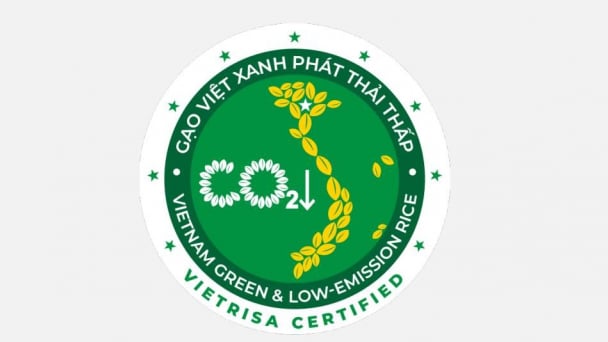May 16, 2025 | 10:04 GMT +7
May 16, 2025 | 10:04 GMT +7
Hotline: 0913.378.918
May 16, 2025 | 10:04 GMT +7
Hotline: 0913.378.918

The 400-500 year old Giant Crape-myrtle tree in Cat Tien forest. Currently, Cat Tien National Park has been recognized by UNESCO as a "World Biosphere Reserve", with hundreds of rare animal species listed in the Red Book of Vietnam. Photo: Dinh Tung.
The overall objective of the National Plan on Glasgow Declaration is to contribute directly to the goals of sustainable agricultural and rural development, the goals of reducing greenhouse gas emissions and adapting to climate change, as well as conserving biodiversity, sustainable forest management, transition to green economy, circular economy; promote sustainable livelihoods for local people and communities, ensure food security and protect the environment, thereby delivering on the commitments of the Glasgow Declaration.
Specific goals by 2025 are to strictly manage the existing natural forest area, minimize the conversion of natural forest use purposes to other purposes, and gradually limit forest degradation and land degradation.
By 2030, the purpose of the plan based on the Glasgow Declaration is to basically reverse deforestation, forest resource degradation, land degradation, and desertification. Moreover, ensuring harmonization of sustainable development of agricultural and forestry production in association with agriculture and rural development, in order to effectively contribute to the implementation of the commitment to reduce greenhouse gas emissions under the national self-determination (NDC).
Striving for the area of poor natural forests to be restored and upgraded to 10% by 2025 and 20% by 2030, contributing to reducing the proportion of poor natural forests and increasing the proportion of natural forests to medium and rich; along with improving the efficiency of biodiversity conservation and protection capacity; improving productivity, economic efficiency and sustainability of planted forests and agricultural crops. By that, the forest area certified for sustainable forest management will reach 0.5 million ha by 2025, and 1.0 million ha by 2030.
Moreover, institutions and policies are improved to promote sustainable production and consumption of agricultural and forestry products without causing deforestation, land degradation and desertification; improve resilience, reduce vulnerability to climate change; develop agriculture and forestry economy towards multi-purpose, low emission, circular economy and green economy...
Translated by Bao Ngoc

(VAN) Veterinary training should focus on quality, not just quantity. Veterinarians also need more options to pursue specialized training.

(VAN) The veterinary industry needs to be viewed objectively and further invested in to properly demonstrate its role and importance in the new context.

(VAN) The number of veterinarians graduating each year is not enough to meet actual needs, hence a difficult problem for the growing livestock industry.

(VAN) The strategic partnership between Cambodia, the Philippines, Vietnam, and CGIAR ensures that innovative solutions effectively address national priorities for food system development.

(VAN) This was affirmed by the UK Minister of State at the Department for Environment, Food and Rural Affairs during a working session with Deputy Minister Tran Thanh Nam on May 13.

(VAN) On May 13, the Ministry of Agriculture and Environment, in coordination with the Embassy of Vietnam in the United Kingdom, organized a seminar titled 'Connecting trade in Vietnam-UK agricultural, forestry, and fishery products'.

(VAN) The launch of the Vietnam green and low-emission rice brand is a positive signal for both businesses and farmers, marking readiness to reach new heights in the global market.